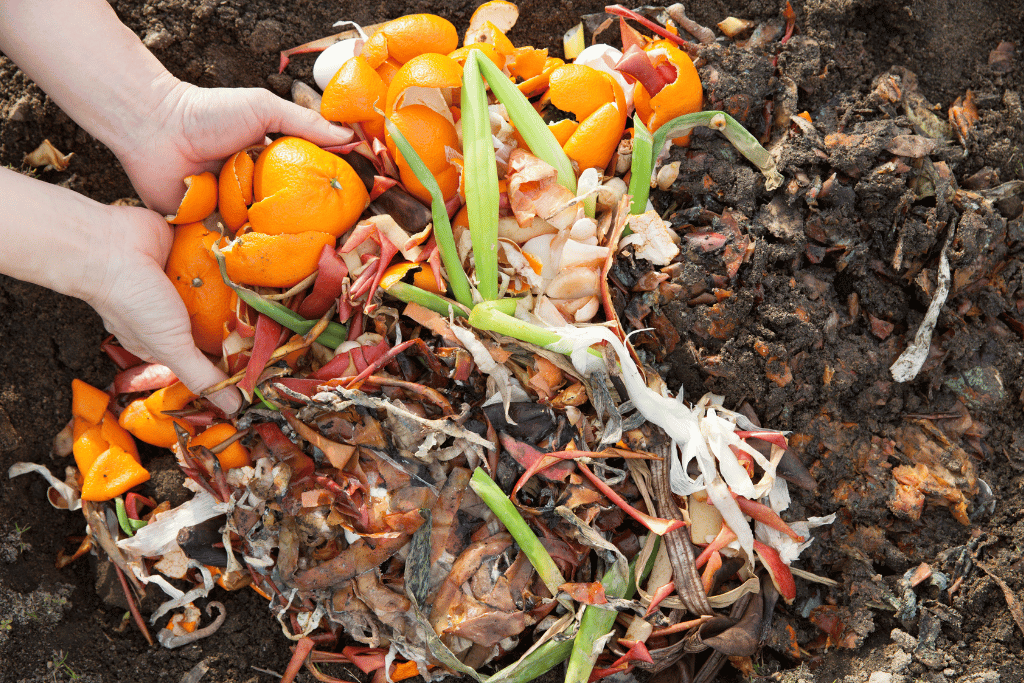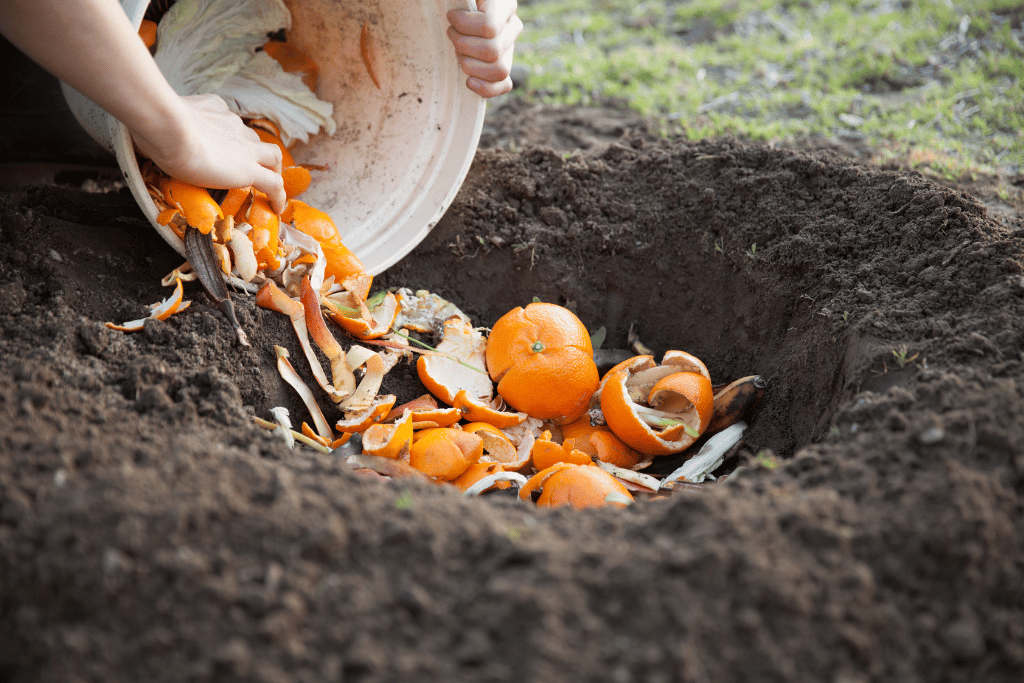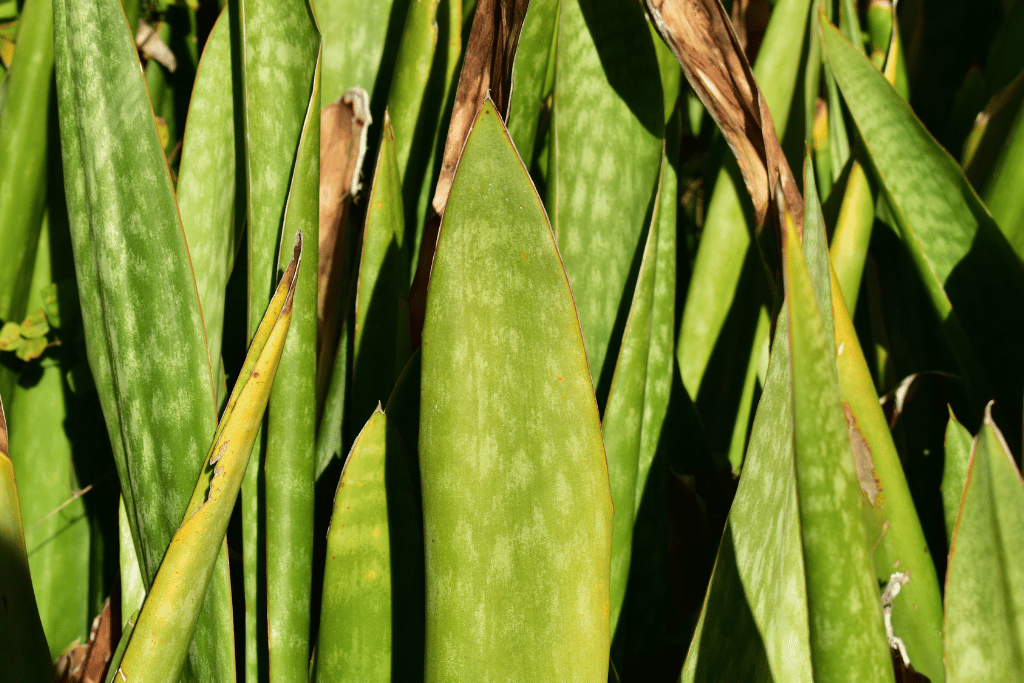
Did you know that the sunny, orange peels which you usually discard after eating the fruit can actually do wonders for your soil? Your plants will be as delighted as a clam in its own habitat once it starts to reap the benefits of these citrus-y peels being incorporated into the compost heap.
Using orange peels in composting your garden can be a game-changer! Citrus skins, such as orange peels, not only improves the soil quality, but also provides essential nutrients. This results in healthier and tastier crops! Not to mention it’s an eco-friendly way of discarding kitchen waste while saving money on costly fertilizers too!
So, let’s dive deeper and learn more about using orange peels in composting.
Can Orange Peels go in Composting?

Orange peels are a fantastic way to kickstart the process of composting!
Orange peels not only contain vital nutrients like nitrogen, potassium, and calcium, they are also the perfect solution to maintain an ideal pH level in your compost pile. In other words – a balanced pH level is essential for a flourishing garden! Who doesn’t want their compost pile to be content and full of life? Including orange peels will guarantee that it stays that way.
But there’s even more! The peel of an orange can be employed to ward off bothersome insects like ants and flies. Not only are oranges healthy, but they may also help protect your garden from pests – it’s almost as if you have your own compost superhero on guard.
When adding orange peels to your compost pile, be sure to remember a couple of tips: chop the peels into smaller pieces for faster decomposition and add some lime if you’re concerned about their acidity. This will allow for successful breakdown without any issues!
Benefits of Orange Peels in Compost Pile

1. Smells like citrus heaven
Throwing orange peels into your compost pile will not only uplift your spirits, but also masks any undesirable smells that may stem from decomposing organic matter. Its refreshing citrus scent is known to have a positive effect on the mood and can provide an instantaneous boost in energy.
2. Fruitful composting
Applying them to your compost pile is a great way to add nitrogen, an essential nutrient for plant growth. Nitrogen boosts microbial activity and facilitates the breakdown of organic matter which results in a more fertile soil with greater nutrients available for plants. This can help ensure that you have healthy and vigorous vegetation.
3. Bye-bye bugs
People swear by the natural insect-repelling powers of orange peels and science backs it up! Studies have shown that limonene found in citrus peels can repel mosquitoes, ants, and roaches. Plus when you add them to your compost pile, they keep pests away from decomposing organic matter. So what are you waiting for? Get yourself some orange peels today to take full advantage of this amazing pest control solution.
4. Sayonara, slugs
Not only can orange peels protect your garden from voracious insects, but they may also help to repel the notorious plant-muncher: the slug. If left unchecked, slugs will cause considerable damage in your garden. Placing orange peels within your compost pile is a simple yet effective way to deter these slimy pests and ensure that your plants remain intact.
5. A pH-balancing act
As an ideal addition to a compost pile, orange peels can be highly beneficial in balancing pH levels of the soil. With their slightly acidic nature, they act as a counterbalance to more alkaline materials such as eggshells and coffee grounds that may have been added previously. Having this balanced environment will give a wider range of plants suitable conditions for growth – so why not add some orange peels into your compost pile today?
6. Slow and steady wins the race
While orange peels may take longer to decompose than other compostable materials, like grass clippings and leaves, this can actually be beneficial. As the peels break down over time, they slowly release essential nutrients that allow your plants to get a steady supply of nourishment for an extended period as opposed to all at once. This slow-release function helps ensure that your plants are receiving the vitamins and minerals required for their growth and development.
7. Funky fresh
Composting can produce offensive odors, but never fear – adding orange peels to the mix is your savior! The citrus fragrance of these discarded rinds helps mask any foul scents from organic matter decomposition and make it a totally pleasurable space. This comes especially in handy if you’re composting near a patio or seating area as no one wants an unpleasant whiff when they’re trying to relax. Using oranges for freshening up isn’t typically something that crosses one’s mind, yet their power shouldn’t be underestimated!
8. Reduce, reuse, recycle
Composting orange peels is a simple way to reduce waste and reallocate something that would otherwise be sent straight to the trash. You’re not only protecting our planet by diverting organic matter away from landfills, but you are creating an essential resource for your garden! Not to mention, this environmentally friendly move helps save money since it provides plants with all of its necessary nutrients without any added cost.
Steps to Compost Orange Peels

Transforming your orange peels into nutrient-rich soil amendment is an easy process – one that will likely pay off when you witness the benefits it brings to your garden. With just a few simple steps, you can turn trash into treasure!
1. Collect your orange peels
The key to successful composting with orange peels is collection. Collect your own peels from oranges you eat, or obtain them from a safe source such as a juice bar or grocery store – just be sure that the skins are pesticide-free and do not contain other harmful chemicals! Store collected orange peels in an airtight container for freshness.
2. Prepare your compost pile
To get the most out of your compost pile, make sure you’ve got it set up just right! It should be located in a well-drained area that has access to plenty of sunshine and is made up of brown and green materials such as leaves, grass clippings, and food scraps. Once everything’s ready to go, don’t forget to add orange peels – either by adding them onto an existing pile or starting one from scratch.
3. Chop the orange peels
Chopping orange peels before including them in your compost pile is a great idea due to the longer decomposition time they require. This will expedite their breakdown and stop them from hogging all the space in your bin. You can either opt for manual chopping or use a food processor or blender if you are seeking speed and convenience.
4. Add the orange peels to your compost pile
Now that you have diced your orange peels, it’s time to incorporate them into your compost heap. Thoroughly blend them with the other materials in your pile so they can break down efficiently. Additionally, add a layer of soil or organic matter on top of the pile to speed up composting.
5. Water your compost pile
It’s essential to keep your compost pile hydrated in order for the compounds to break down. Orange peels are particularly rich with nitrogen, which can cause your compost heap to become too dry more quickly – so make sure you water it regularly, especially during drier or hotter times!
6. Turn your compost pile
To ensure everything decomposes properly and is evenly distributed, you should regularly turn your compost pile. Use a pitchfork or specialized turning tool every few weeks – this will aerate the material and stop it from becoming too cramped.
7. Harvest your compost
After six months of decomposing, your compost pile is ready to be harvested. You’ll notice that the orange peels have decomposed and changed into a deep, dark soil amendment – perfect for adding nutrients to your garden beds or directly around plants! Use a garden fork to acquire the compost and evenly distribute it throughout your gardening area. Witness how this nutrient-rich concoction will boost plant growth in no time!
Can You Put Orange Peels in Worm Compost?

If you intend to provide your worms with orange peels, be sure they are open-minded eaters. For all you know, maybe your worms only stick to plant-based diets and won’t even consider anything citrusy! Before attempting to win over their palates with tasty treats, it’s always wise to recognize the tastes of those for whom you’re cooking.
If your worms are not picky eaters, you may be wondering if orange peels can benefit them. The answer is yes! Orange peels contain nitrogen, phosphorus, and potassium – all of which are key nutrients for plant growth. However, avoid giving too many at once since they can be quite acidic and sway the pH balance in your compost bin. So watch yourself here: don’t peel off more than you can handle!
But wait, there’s more! Want to say goodbye to those pesky ants and aphids? You can do it using the power of orange peels. Just scatter a few around your plants and watch as instant insect repellent is unleashed on them like never before. Who knew you could use something so simple for such an effective purpose?



